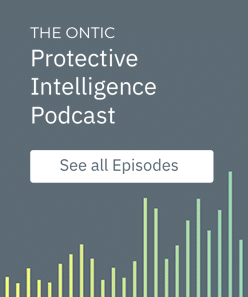Podcasts
You See Me, You Can Be Me — The Value of Mentorship for Future Leaders
As a fourth generation Chicago Police officer (and the first female in her family), Chief Mary Eileen Paradis had a desire to protect ingrained in her life early on. Despite the complex task of protecting 10,000 employees in healthcare, and in a high-crime urban area like Jackson, Mississippi, her unwavering dedication and energy toward her role are just some of the qualities that have propelled her to excel in her career.
Chief Paradis possesses a combination of 30 plus years of law enforcement, higher education public safety, and emergency management experience. She currently serves as the Chief of Police and the Executive Director of Public Safety for the University of Mississippi Police Department and the Office of Public Safety. In addition to higher education, Chief Paradis has worked in security in museums, hospitality, retail, and was a sworn member of the Chicago Police Department’s Intelligence Section for over 11 years. Follow her on LinkedIn.
Key topics of Chief Paradis’ discussion with host Dr. Marisa Randazzo include:
- The challenges she faces from increases of workplace violence in the healthcare sector generally and how she takes care of her team.
- Addressing the complexities of both the university and healthcare side of her role and the importance of relationships with local police and other areas on campus.
- Advice for women/girls pursuing a career in protection and her involvement in NAWLEE (National Association of Women Law Enforcement Executives).
Key takeaways:
10:23: Marisa Randazzo: You have an incredible gift for developing cultivating and maintaining great liaison relationships within your department across other agencies with you know. How do you see the value of relationships in your career — is this something that comes by naturally for you?
11:58: Mary Paradis: Oftentimes as a police officer you’re called to a situation that you really have no control over It’s not a law enforcement call but they call the police because the police are there 24/7 and will come and work through a problem with them, and oftentimes we really needed the sewer department or streets and sanitation or one of the other departments in the city to solve that customer’s problem.
13:29: Mary Paradis: I think that that is my drive to communicate and to share information with folks in my arena and my neighborhood in my community and I believe that that has led me to a successful career.
23:02: Mary Paradis: You know I say to young girls when on campus when I’m walking around and they say ‘oh are you a police officer?’ I said ‘Actually, I’m the boss. I’m chief.’ and they say I want to be a chief too. I say to them you see me, you can be me.
26:18: Mary Paradis: Well, they are the most important thing is the whole being. If they’re (security staff) not healthy and happy at home and outside of work, they’re not going to be productive at work. We call it a life work balance with our team. So my officers work three twelve hour days and then they’re off for three and they love it. We don’t force overtime on our staff. A lot of cities and municipalities have forced overtime where officers aren’t getting any days off. That’s not healthy.
